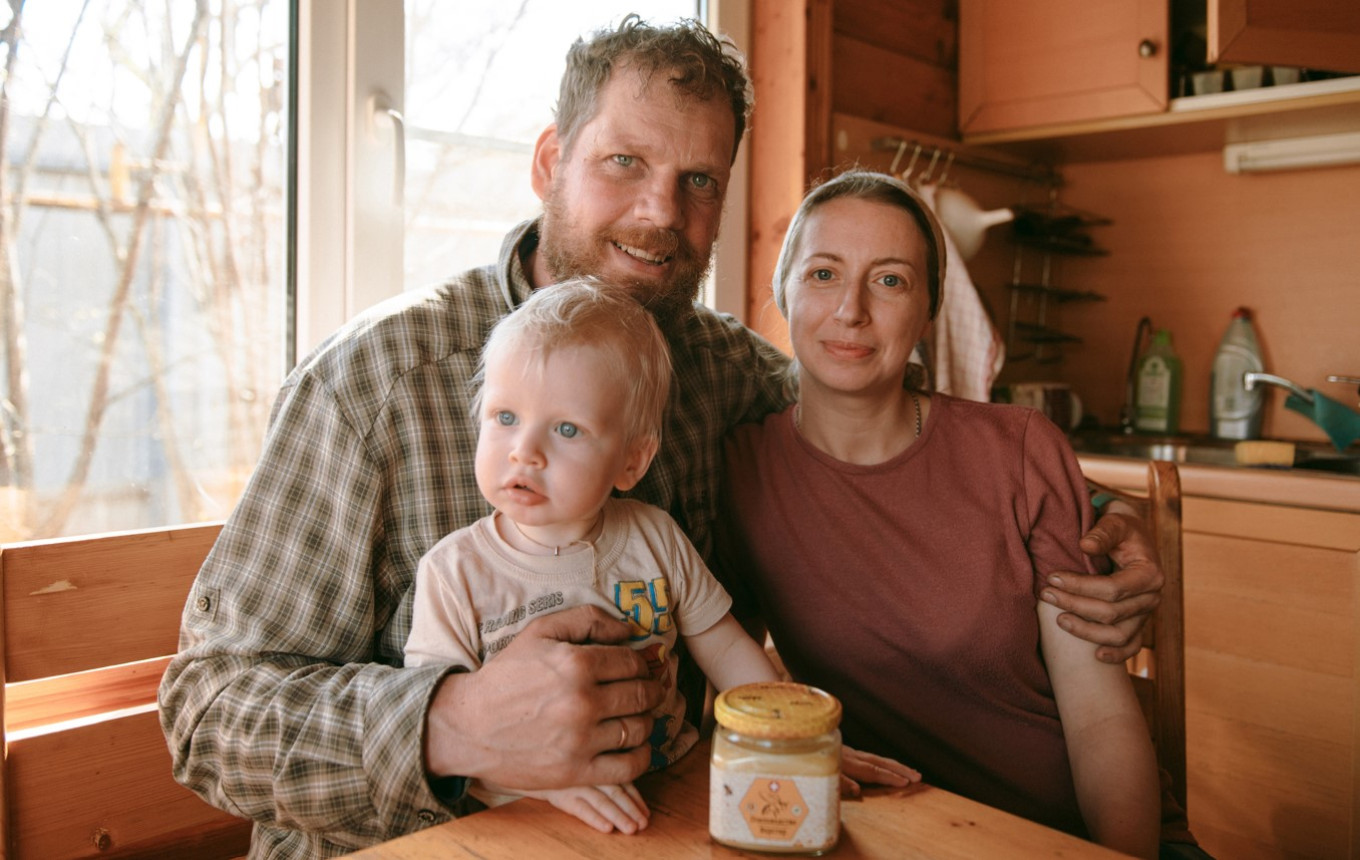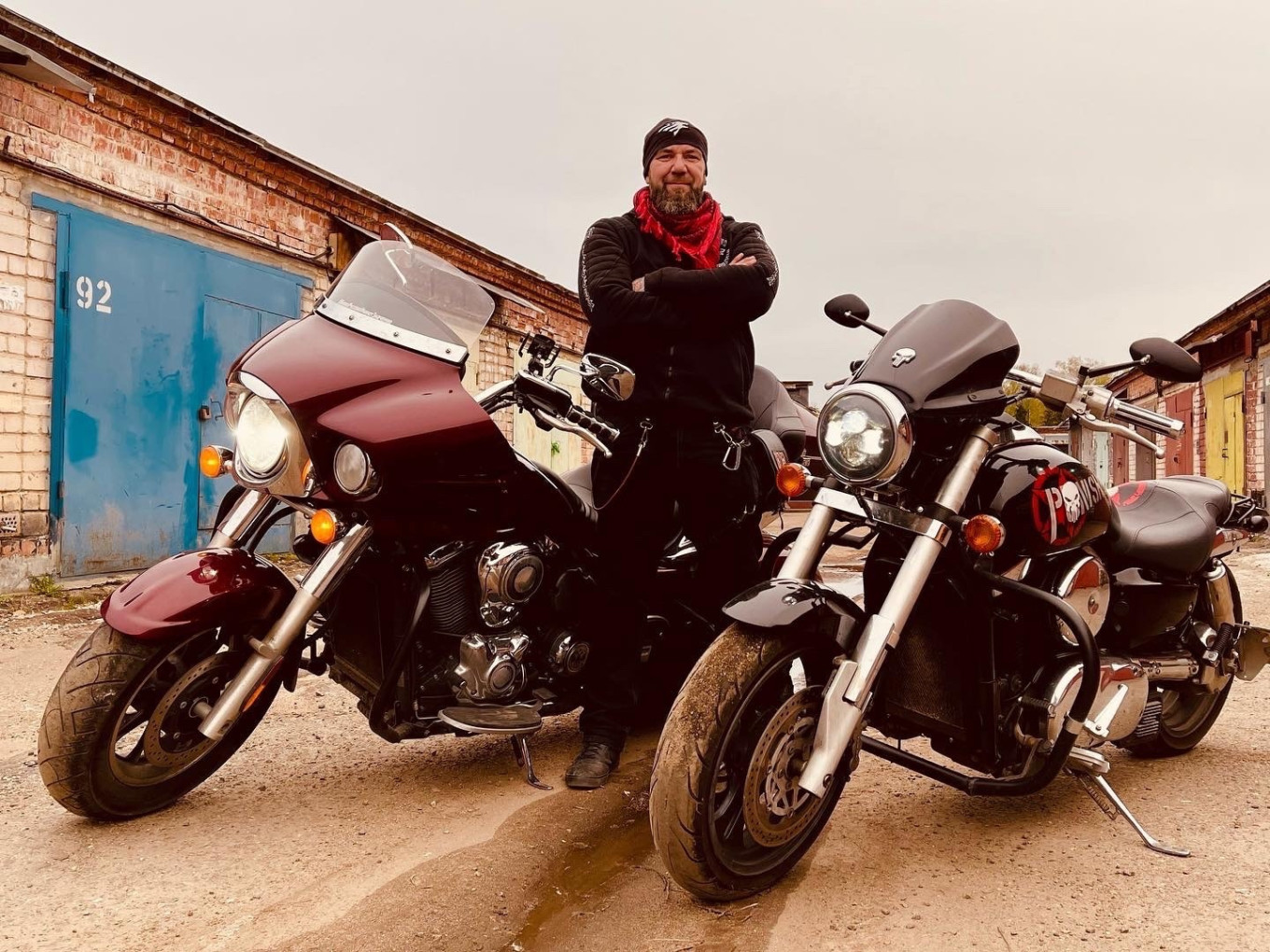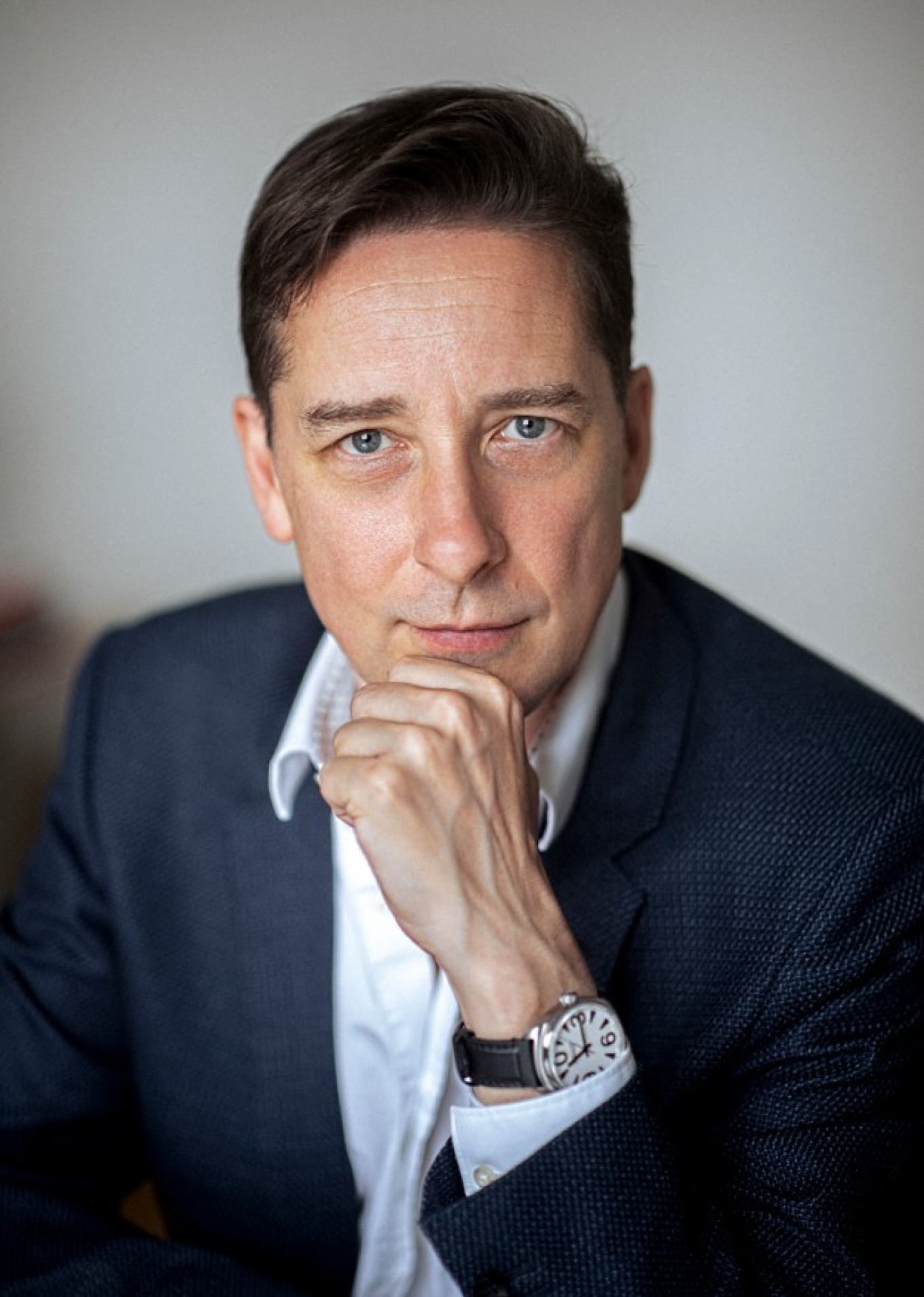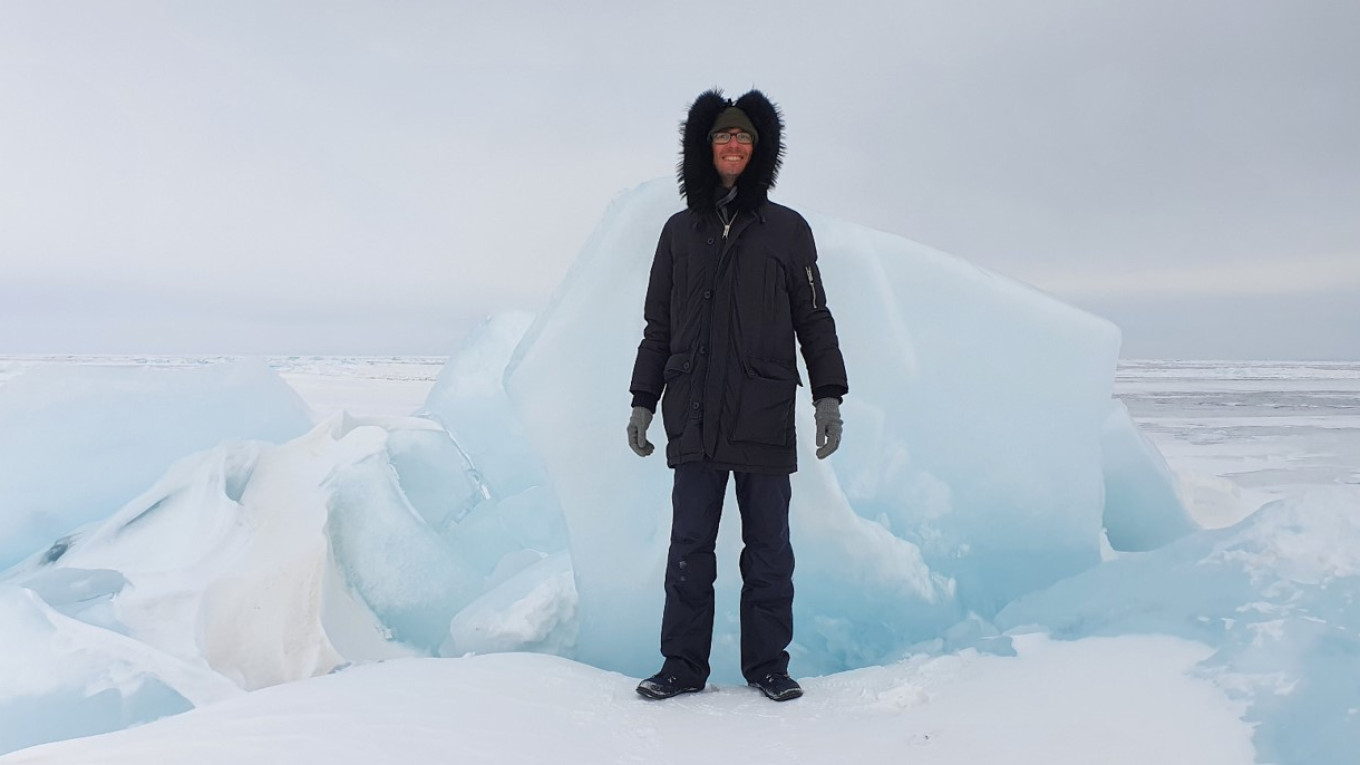After the Russian invasion of Ukraine last year, hundreds of thousands — perhaps more than a million — people left Russia. Although there is no data on how many of those people were foreigners, certainly many foreign citizens left Russia either at the insistence of their employers or on their own initiative. Many Western embassies advised their citizens to leave immediately, warning of the risks of staying.
The Moscow Times spoke to five foreigners who stayed. They are all living in various parts of Russia, have been living in Russia for a long time — and have no plans to leave in the near future.
True to his roots
Anselme Fayolle came to Moscow from France in 2008 to study Russian. He had no plans to stay at first, but he has been living here and working as a teacher of French at an international language school ever since.
Before coming to Russia, he knew more about the U.S.S.R. and only that Russia was the largest country in the world. He was surprised that Russians say what they think. “It can be unpleasant. But I liked this directness,” Anselme said.
Anselme loves to travel around Russia — even by hitchhiking. His favorite places are Lake Baikal and the cities of Vladivostok, Murmansk, Krasnoyarsk, and St. Petersburg. He also likes the Caucasus and Dagestan. “Most Russians like the French, and I’ve never had problems with my nationality,” Anselme told The Moscow Times.
A lot of his friends left Russia in 2022. Anselme is not going to return to France, but he does not exclude the possibility of relocation to other country, including his homeland. But for now he is staying in Russia. He lost some of his French students in 2022, but he has a lot of work again.
“I like France and Russia for different reasons. Russia has certainly influenced me, but I am still French,” Anselme said.
An aspiring Swiss Cossack

Benjamin Forster is from Switzerland. Since 2015 he has been living in Pereslavl-Zalessky, a small town a few hours’ drive from Moscow. He learned about the town from his Russian friends and the book “Taras Bulba” by Nikolai Gogol; now he likes to say he has a Cossack soul.
For 12 years Benjamin has been practicing organic beekeeping, and he continued his business in Pereslavl-Zalessky. “There is a stereotype in Switzerland that Russia is a third-world country, but it is not so,” he said. “My father said that he could sense how much I liked living in Russia, and he was glad. He was not surprised when I decided to stay here.”
Benjamin said that almost nothing changed in his life in 2022, except that visiting home has become more complicated. He used to visit Switzerland once a year, but now without a direct flight it is a long and complicated trip. He has to take a bus from St. Petersburg to Tallinn, and from there fly to Zurich. Another problem has been accessing money. But besides his beekeeping business, he also conducts Russian-language guided tours of his apiary. Since 2022, many Russians have begun to travel around Russia more often, and as a result, there is more demand for his guided tours.
“Russia is my home. I like the culture, mentality, and freedom. Here I have a house and a family. I am not against Switzerland, but I prefer to live here. I always joke that I was just born in the wrong country; the stork got confused and took me to the wrong place,” Benjamin said.

An Englishman with a Russian soul
Craig Ashton is from Great Britain. He studied Russian at the University of Exeter and came to Russia for the first time in 2002 with a group of students. He fell in love with St. Petersburg and wanted to live there.
At first, his relatives and friends were surprised by his decision, but he explained he had to live in Russia to understand the Russians. His mother and grandmother were especially worried. “In 2022, my mother wanted me to come home, but I decided to stay,” Craig said.
Today he works as a writer, blogger, and a teacher of English. “After Feb.24, I had fewer students, and I was wondering if there would be money for food. I bought a huge amount of bottled water and buckwheat, sat in the apartment and read the news. But now everything is back to the way it was before,” Craig told The Moscow Times.
He adds that he still likes Russians as much as he ever did. In the summer of 2022, he went to Great Britain with his wife to visit his family. After a month they came back. “Russia is the country that adopted me and gave me a job, a family, friends, and adventures. It is my life. I feel I must be here. If I leave when there are hard times, what kind of relationship is that?”
Pro-Kremlin information warrior

Sven Svenson left Germany many years ago. While he was living in Egypt he met a Russian woman, and they came to Russia together. Before that, he had never been to the country, but his grandmother used to say that Russia should be respected because they liberated the Germans from fascism.
In Moscow, he joined the pro-Russian Night Wolves motorcycle club and started to teach German and English at an international language school. After the start of the war, he never considered leaving Russia.
“The Germans are distant from me in spirit. I always say that I am for Russia, and I feel more Russian in spirit,” Sven told The Moscow Times.
He is sure that the Europeans do not know what happened before Feb. 24, 2022 in Ukraine, and said that he is fighting an information war on social networks.
“I make posts to show that the stores are not empty. It is often said that prices have risen in Russia, but I lived in Germany, where everything was expensive. In Russia, almost everyone has an apartment and a dacha, but in Germany, the majority rent housing. In Germany medical care is not free, taxes are high, and as a result, there is very little money left over. I do not talk about Ukraine with my brother, because we have different points of view, but many of my subscribers are beginning to understand the truth. After World War II, Russia promised that it would always defend the world from fascism, and this is what we are doing now,” Sven said.

Life’s work in Russia
David Henderson-Stewart is from the United Kingdom, but he decided to get his first work experience abroad. In 1996 he came to Moscow to work for a French company.
Today he is the managing director of the Raketa Watch Factory. When he visited the factory for the first time, he was captivated by the manufactory and its 300-year history. “In 2022, I didn’t even consider leaving, because the factory is my life’s work,” he told The Moscow Times.
In 2022, sales dropped off in Europe and the U.S., but they have evened out and new markets in the Middle East have opened up. David also hopes to enter the Asian market by next year. “The uniqueness of the factory is that we are limited in production capacity,” he said — meaning there will always be more demand than supply.
He admits that nowadays logistics have become more complicated and expensive, but nothing has changed in his personal life.
“I understand that I have privileges,” David said. “Yes, it’s more difficult and expensive to travel, and my family doesn’t come to see me anymore, but nothing has changed in my life in Moscow. We often go to theater and opera. My family is here, my work is here.”
A Message from The Moscow Times:
Dear readers,
We are facing unprecedented challenges. Russia's Prosecutor General's Office has designated The Moscow Times as an "undesirable" organization, criminalizing our work and putting our staff at risk of prosecution. This follows our earlier unjust labeling as a "foreign agent."
These actions are direct attempts to silence independent journalism in Russia. The authorities claim our work "discredits the decisions of the Russian leadership." We see things differently: we strive to provide accurate, unbiased reporting on Russia.
We, the journalists of The Moscow Times, refuse to be silenced. But to continue our work, we need your help.
Your support, no matter how small, makes a world of difference. If you can, please support us monthly starting from just $2. It's quick to set up, and every contribution makes a significant impact.
By supporting The Moscow Times, you're defending open, independent journalism in the face of repression. Thank you for standing with us.
Remind me later.






